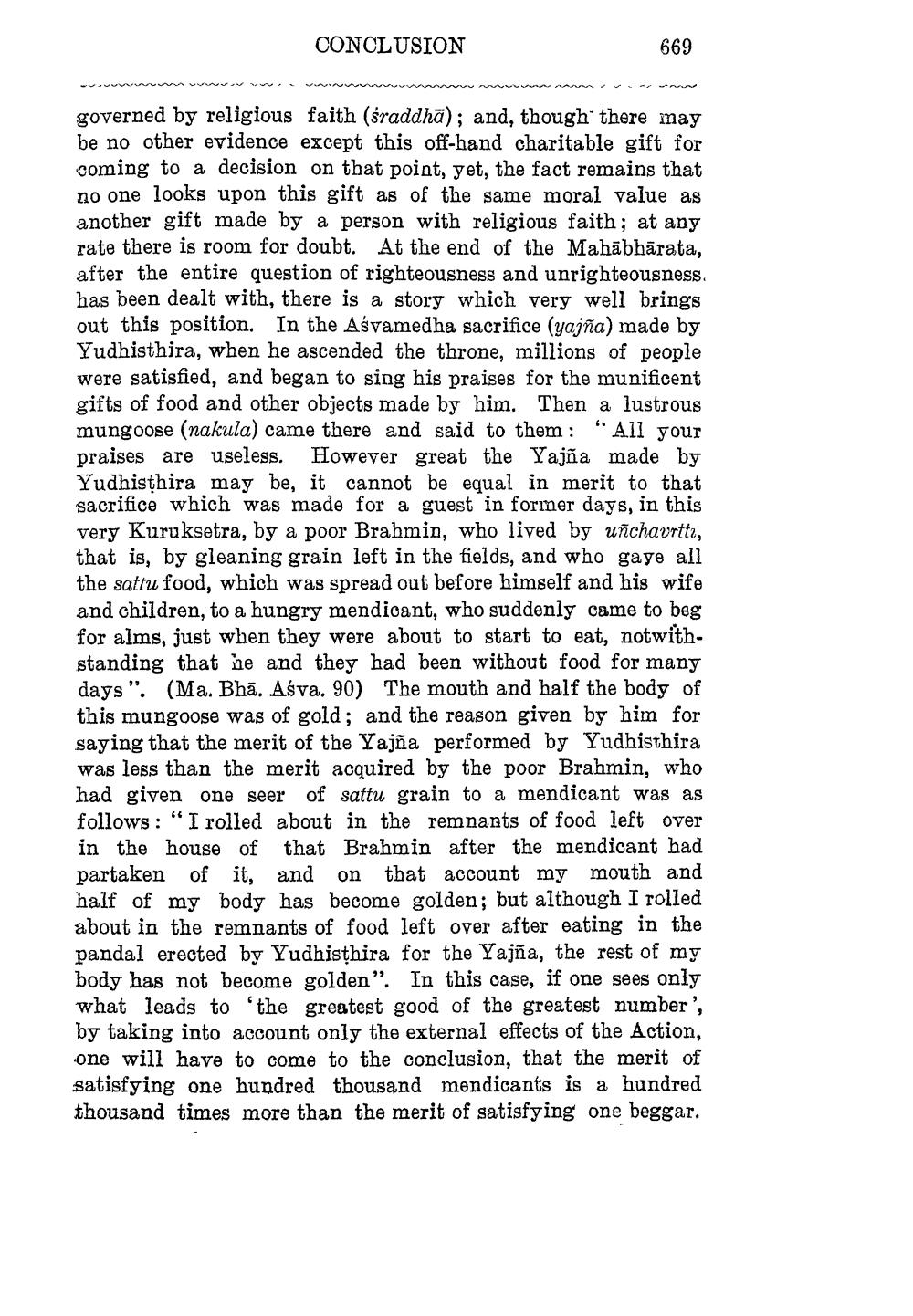________________
CONCLUSION
669
governed by religious faith (śraddhā); and, though there may be no other evidence except this off-hand charitable gift for coming to a decision on that point, yet, the fact remains that no one looks upon this gift as of the same moral value as another gift made by a person with religious faith; at any rate there is room for doubt. At the end of the Mahābhārata, after the entire question of righteousness and unrighteousness. has been dealt with, there is a story which very well brings out this position. In the Aśvamedha sacrifice (yajña) made by Yudhisthira, when he ascended the throne, millions of people were satisfied, and began to sing his praises for the munificent gifts of food and other objects made by him. Then a lustrous mungoose (nakula) came there and said to them: “All your praises are useless. However great the Yajna made by Yudhisthira may be, it cannot be equal in merit to that sacrifice which was made for a guest in former days, in this very Kuruksetra, by a poor Brahmin, who lived by unchavrtta, that is, by gleaning grain left in the fields, and who gaye all the sattu food, which was spread out before himself and his wife and children, to a hungry mendicant, who suddenly came to beg for alms, just when they were about to start to eat, notwithstanding that he and they had been without food for many days”. (Ma. Bhā. Aśva. 90) The mouth and half the body of this mungoose was of gold; and the reason given by him for saying that the merit of the Yajña performed by Yudhisthira was less than the merit acquired by the poor Brahmin, who had given one seer of sattu grain to a mendicant was as follows: “I rolled about in the remnants of food left over in the house of that Brahmin after the mendicant had partaken of it, and on that account my mouth and half of my body has become golden; but although I rolled about in the remnants of food left over after eating in the pandal erected by Yudhisthira for the Yajña, the rest of my body has not become golden". In this case, if one sees only what leads to the greatest good of the greatest number', by taking into account only the external effects of the Action, one will have to come to the conclusion, that the merit of satisfying one hundred thousand mendicants is a hundred thousand times more than the merit of satisfying one beggar.




